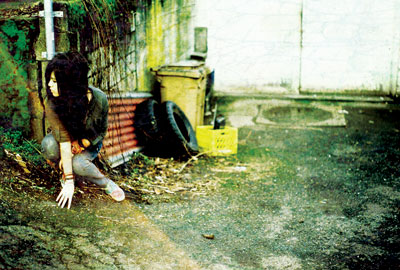All Nonfiction
- Bullying
- Books
- Academic
- Author Interviews
- Celebrity interviews
- College Articles
- College Essays
- Educator of the Year
- Heroes
- Interviews
- Memoir
- Personal Experience
- Sports
- Travel & Culture
All Opinions
- Bullying
- Current Events / Politics
- Discrimination
- Drugs / Alcohol / Smoking
- Entertainment / Celebrities
- Environment
- Love / Relationships
- Movies / Music / TV
- Pop Culture / Trends
- School / College
- Social Issues / Civics
- Spirituality / Religion
- Sports / Hobbies
All Hot Topics
- Bullying
- Community Service
- Environment
- Health
- Letters to the Editor
- Pride & Prejudice
- What Matters
- Back
Summer Guide
- Program Links
- Program Reviews
- Back
College Guide
- College Links
- College Reviews
- College Essays
- College Articles
- Back
How a Science Fair Project Led to an Alternative for Fuel
Temperatures are rising because of CO2 emissions. Eco systems are being destroyed because of Global Warming. I have always wanted to find a solution to this problem. A solution is to use fruit peelings in a briquette form and burn them. This is a great eco-friendly alternative for coal and wood. This does not pollute the Earth because about the same amount of CO2 is taken from the air. I was wondering which kind of fruit briquette would make the best alternative for coal or wood. A briquette is a block of flammable matter that is used to start or maintain a fire. To test this I made three briquettes one banana peel, one orange peel, and one mixed briquette of banana and orange peelings. These are all biomasses (organic material) and the biomass will produce biofuel. I found that that banana briquette burned the longest and reached the highest temperatures because it contained the most carbon units. The mixed briquette burned the second longest. Finally the orange briquette burned the worst because it contained the least amount of carbon units. So in conclusion the mixed briquette is the best alternative for coal because it burned the longest and reached the highest temperatures.

Similar Articles
JOIN THE DISCUSSION
This article has 0 comments.
